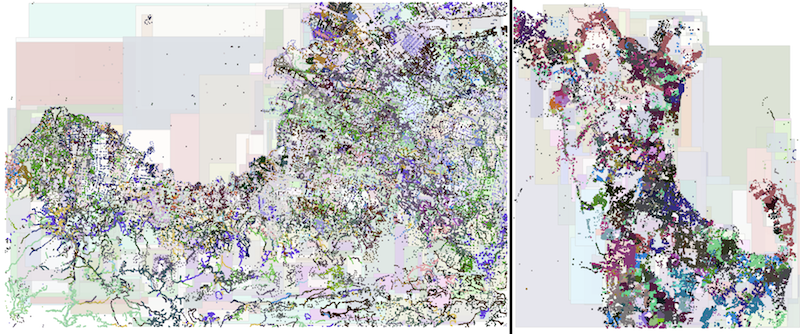Success & Scale in a Data-Producing Organization:
The Socio-Technical Evolution of OpenStreetMap in Response to Humanitarian Events
Leysia Palen, Robert Soden, Jennings Anderson, Mario Barrenechea
In Proceedings of CHI 2015

Fig. 1: Difference in Editing Patterns between 2010 Haiti Earthquake and 2013 Typhoon Yolanda (Philippines)
Abstract
OpenStreetMap (OSM) is a volunteer-driven, globally distributed organization whose members work to create a common digital map of the world. OSM embraces ideals of open data, and to that end innovates both socially and technically to develop practices and processes for coordinated operation. This paper provides a brief history of OSM and then, through quantitative and qualitative examination of the OSM database and other sites of articulation work, examines organizational growth through the lens of two catastrophes that spurred enormous humanitarian relief responses—the 2010 Haiti Earthquake and the 2013 Typhoon Yolanda. The temporally- and geographically- constrained events scope analysis for what is a rapidly maturing, whole-planet operation. The first disaster identified how OSM could support other organizations responding to the event. However, to achieve this, OSM has had to refine mechanisms of collaboration around map creation, which were tested again in Typhoon Yolanda. The transformation of work between these two events yields insights into the organizational development of large, data-producing online organizations.